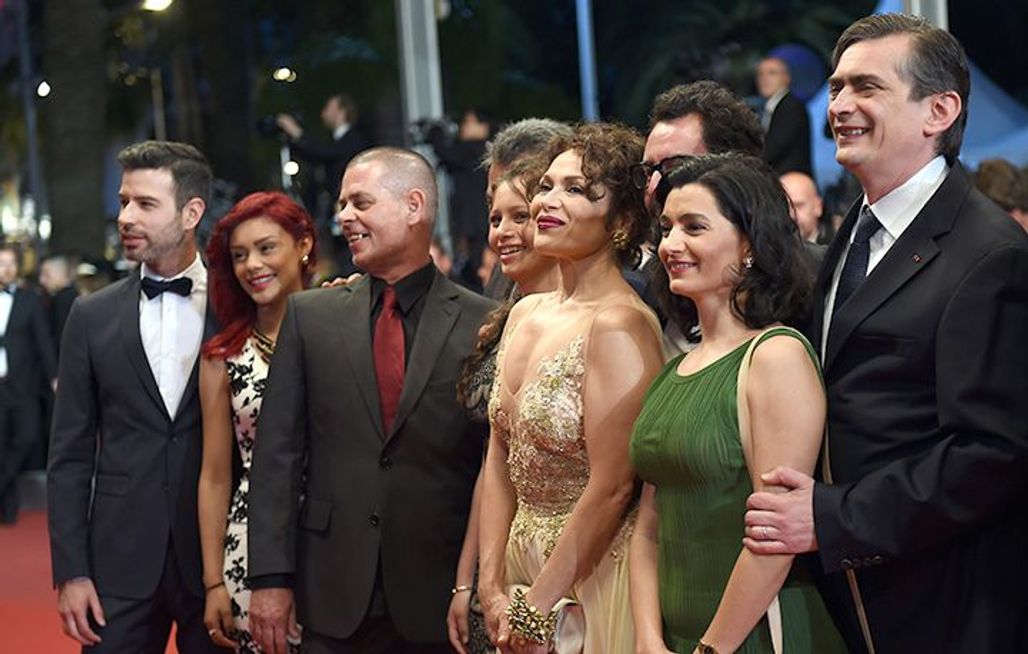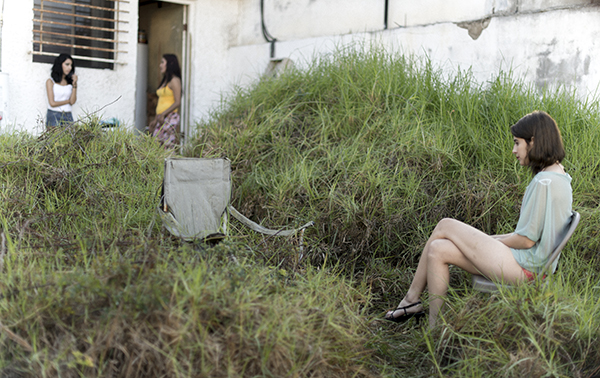
UN CERTAIN REGARD – Las Elegidas (The Chosen Ones), interview with David Pablos

Mexican film-maker David Pablos makes his debut in the 2015 Cannes Selection with a second feature film, Las Elegidas (The Chosen Ones), filmed in his hometown of Tijuana. He returns to some favourite themes: family and abandonment.
How did you begin to work on this film?
I was approached by producer Pablo Cruz about a screenplay by Mexican writer Jorge Volpi. I started co-writing with Volpi to create a new version of the screenplay, but because of time issues, our collaboration ended prematurely. At that point I did some research into the subject of human trafficking and came up with a whole new story, using only basic elements from the original text (the title, the main character’s name and the theme). Based on my research, I took fragments of reality to construct my own world. It was never my intention to create a literal adaptation.
Las Elegidas © Gregory Smith
Please describe your working methods and the atmosphere on set. Any anecdotes to share?
It was essential that before shooting the film, my main actors, who were mostly teenagers, should get to know each other and learn to work together. They completed an intense, month-long workshop to be trained as actors, but more than anything my main goal was to make them close and have them trust each other. I knew the film entirely depended on it. And thankfully, this is exactly what happened: they became a family, which was the only way I could allow them to make scenes that could be violent or emotionally demanding. There are many aspects of this story that, even though I thought about explaining them to my main actors, they wouldn’t have completely understood because of their age, and I didn’t want to expose them to such things either. So, as I got to know them well, I decided to work with my actors’ own feelings and personal lives in order for them to reach the emotional place they needed to be in to tell the story. This made things much easier because they weren’t exposed to things they wouldn’t have been able to handle, and the shoot was extremely enjoyable as a result. I have nothing but great memories from my time in Tijuana, getting to know all those extraordinary and talented young people. They had a great time as well. The shoot was all laughs, even though the film is tense and sad. What I remember the most right now was the last day of shoot, and how everyone, including myself, was sad that the experience was about to end. I feel proud of them all. They gave everything they had to this film.
Please share a few words about your actors
My main cast was comprised of teenagers and I needed to look for people with certain characteristics in tune with the roles I had written. I sent my casting director to look for faces in schools, boxing centres, and certain neighbourhoods in Tijuana. The casting took more than three months but I remember – early on in the process – seeing the boy and the girls who play Ulises, Sofía and Marta for the first time, and knowing immediately that I’d found my leads. Ulises is played by Óscar Torres, Sofía by Nancy Lourdes Talamantes and Marta by Leidi Gutiérrez. From day one it was obvious that with Leidi, I was dealing with a diamond in the rough. It was just a matter of giving her a few prompts and very specific notes, so that she could exercise that enormous talent. With Óscar and Nancy the process was different. What I had to do was find a way for them both to freely express their own emotions, something they weren’t used to. At first, they couldn’t connect with themselves because they felt insecure about their presence in front of the camera. But once they learned that allowing themselves to feel and be vulnerable wasn’t something bad or something that would hurt them, they were free to start really acting. This not only helped them enormously as actors, but also made them much more confident as human beings. Although my main cast was made up of non-actors, I also worked with a few actors from Tijuana, such as Ulises’ father, played by Edward Coward, and Raquel Presa, who plays his mother. They are both very well known in Tijuana as theatre actors, but had never made films before. For them, the main challenge was to be in the same place as the non-actors tonally; to be able to move freely and unnoticeably around them. I have no hesitation in saying they did a great job.
What are your views on the film industry in Mexico?
Mexico is now a country that is producing a significant number of films, especially if we compare this with the number being shot a decade ago. Not only are lots of films coming out each year, but they are very varied. The big problem is the bridge connecting our films with their audiences. They often don’t even know the films exist. That’s where we still have a lot of work to do. And I really don’t think that Mexican audiences want to see national cinema.
What sources of artistic inspiration have you drawn upon in your work?
Still photography is one of my greatest passions. I constantly try to look at images to “educate” my eye. It is also a very good way to stimulate the imagination every day, as when you look at a photograph you can ask yourself about the possible stories contained within the image. I also consider music a very important source of inspiration when working in film – rhythm is everything.
Can you tell us about your next project?
I am writing a new screenplay with the support of Mexico’s FONCA scholarship. It’s also set in the north of the country, where the characters live in a lawless no-man’s land and operate on the basis of a single principle: the strongest prevails.
SCREENINGS
Monday 18 May / Debussy Theatre / 2 pm – 10 pm



